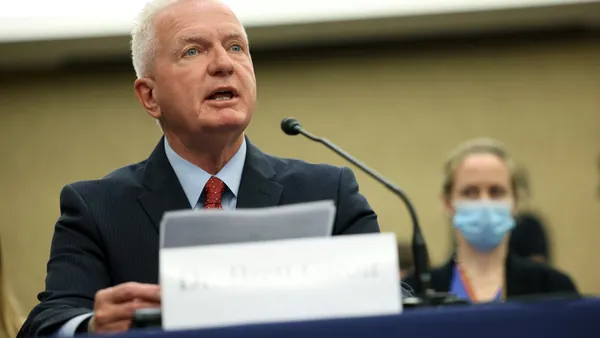Dive Brief:
- Stealth BioTherapeutics is once again seeking U.S. approval of a drug for the rare condition Barth syndrome, claiming in an announcement Monday that it has addressed concerns that led the Food and Drug Administration to reject the therapy in May.
- Stealth said it provided the FDA with information the agency requested on safety and manufacturing as well as a proposed post-approval trial to confirm the benefits of the therapy, which is known as elamipretide. The FDA has signaled a six-month evaluation period will follow, but Stealth has asked the agency to categorize its application as a “Class 1” review, which would shorten the process to two months.
- The FDA rejection came after a lengthy initial review of elamipretide, which included a delayed decision and a missed deadline. Despite having special designations meant to speed up its evaluation, elamipretide has been under review since January 2024.
Dive Insight:
Stealth and elamipretide have become a cause célèbre among critics who believe innovation is slowing down under the leadership of FDA Commissioner Marty Makary. While the FDA’s public spat with Sarepta Therapeutics over the Duchenne muscular dystrophy gene therapy Elevidys is the most notable example, the agency has faced criticism from some conservative outlets for certain drug rejections, too, including a cancer drug from Replimune and Stealth’s Barth syndrome treatment.
Barth syndrome is a genetic condition that weakens skeletal and heart muscles and results in death for most children who have it by age 5. About one in a million children have it, or roughly 150 in the U.S., according to Stealth.
Elamipretide is meant to address the disease by boosting muscle function. To support approval, Stealth enrolled 12 boys at least 12 years of age in a clinical trial that evaluated elamipretide’s effects on leg muscles or physical tasks such as a timed walking test. An FDA advisory committee concluded the results proved elamipretide’s effectiveness, despite concerns from agency reviewers that treatment wasn’t associated with a statistical improvement in the walk tests. The agency later rejected Stealth’s drug, but agreed to consider its effects on muscle strength as an “intermediate clinical endpoint” that could support a speedy approval.
Stealth is now seeking that approval and, in its statement, called on the FDA “to act with urgency, consistent with its stated commitment to expedite review” of the therapy and make an “early action on the resubmission.”














